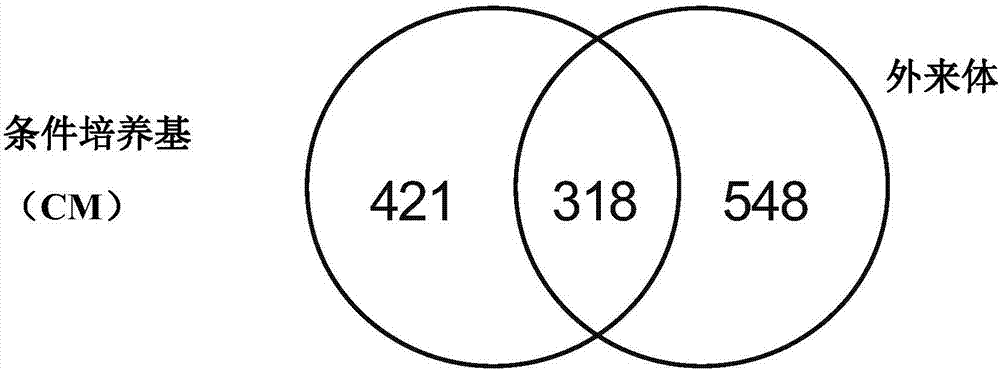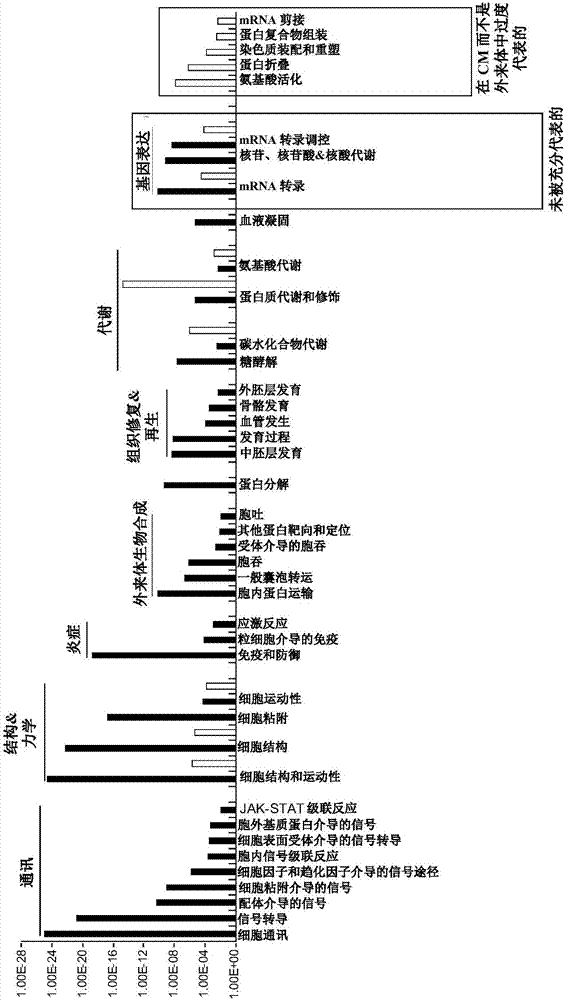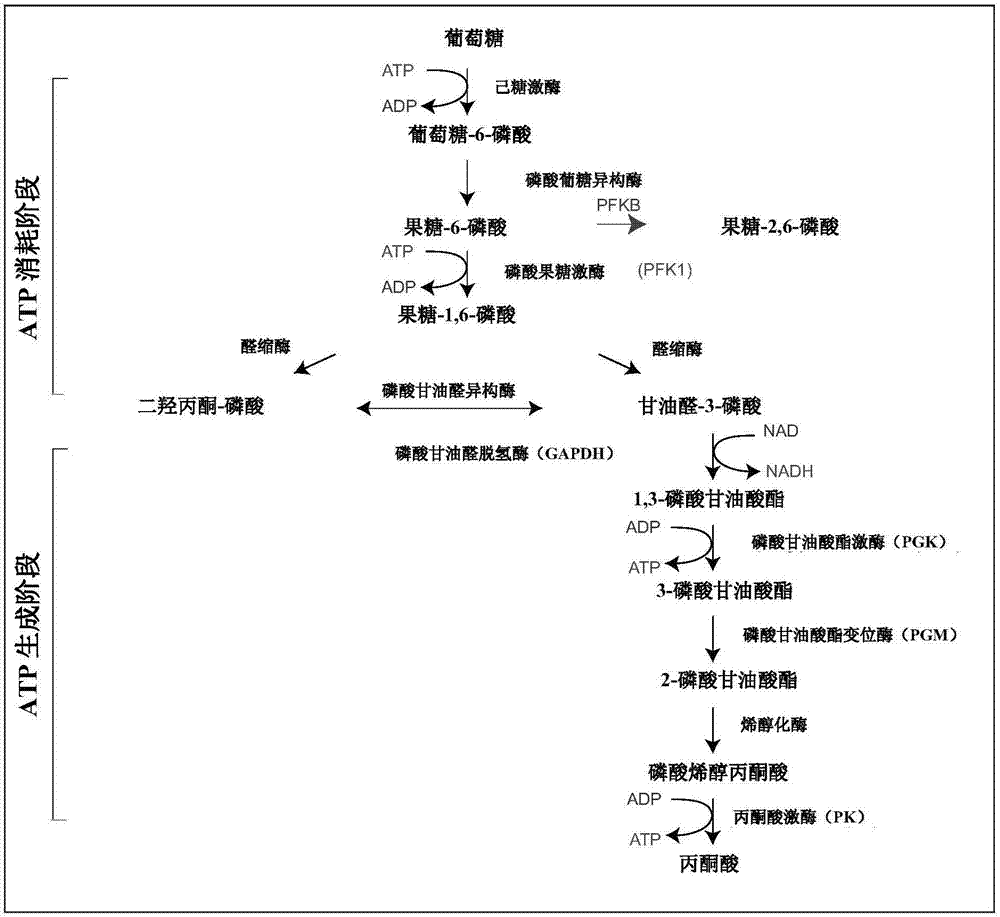Methods of detecting therapeutic exosomes
An exosome, detection table technology, applied in the fields of molecular biology and genetics, cell biology, medicine, can solve the problem that the molecular or biochemical basis has not been elucidated
- Summary
- Abstract
- Description
- Claims
- Application Information
AI Technical Summary
Problems solved by technology
Method used
Image
Examples
Embodiment 1
[0334] Example 1. Materials and Methods - Preparation of Exosomes Exosomes
[0335] Exosomes were purified from huES9.E1 -derived MSC conditioned cultures (CM) using HPLC as previously described. Briefly, CM collected from MSC cultures was concentrated 50-fold by tangential flow filtration (TFF) using membranes with 100 kDa MWCO (Sartorius, Goettingen, Germany).
[0336] Then, CM was passed through a chromatography column (TSK Guard column SWXL, 6x40mm and TSK gel G4000SWXL, 7.8x300mm, Tosoh Corp., Tokyo, Japan).
[0337] Exosomes were collected from the first peak of elution and concentrated using 100 kDa MWCO filters (Sartorius). Filter exosomes with a 0.22 µm filter before storage or use.
Embodiment 2
[0338] Example 2. Materials and methods - LC MS / MS
[0339] Proteins in 2 ml dialyzed exosomes were reduced, alkylated and trypsinized as described (20).
[0340] Then, the samples were desalted by passing the digestion mixture through a conditioned Sep-Pak C-18SPE kit (Waters, Milford, MA, USA) with 3% acetonitrile (ACN) (New JT Baker, Phillipsburg, NJ) and 0.1% Wash twice with formic acid (FA) buffer and elute with 70% ACN and 0.1% FA buffer.
[0341] Eluted samples were then dried to approximately 10% of their original volume by removing the organic solvent in a vacuum centrifuge.
[0342] To reduce sample complexity, offline peptide fractionation was performed with an HPLC system (Shimadzu, Japan) through a Polysulfoethyl SCX column (200mm×4.6mm) (PolyLC, USA).
[0343] 1ml / min, mobile phase A (5mM KH 4 PO 4 +30% acetonitrile) and mobile phase B (5mM KH 4 PO 4 + 30% acetonitrile + 350 mM KCl).
[0344] Collect and dry into 8 fractions in a vacuum centrifuge.
[034...
Embodiment 3
[0354] Example 3. Materials and Methods - Antibody Chips
[0355] According to the manufacturer's instructions, use a Biotin-labeled Human Antibody Chip I (RayBio, Norcross, GA) detected the presence of cytokines and other proteins from 500 l of unconditioned cultures and exosomes from three independent preparations.
[0356] Exosomes Cytokines and other proteins were considered present in exosomes if the signal intensity was 2-fold higher (p<0.05) compared to non-conditioned cultures.
PUM
 Login to View More
Login to View More Abstract
Description
Claims
Application Information
 Login to View More
Login to View More - R&D
- Intellectual Property
- Life Sciences
- Materials
- Tech Scout
- Unparalleled Data Quality
- Higher Quality Content
- 60% Fewer Hallucinations
Browse by: Latest US Patents, China's latest patents, Technical Efficacy Thesaurus, Application Domain, Technology Topic, Popular Technical Reports.
© 2025 PatSnap. All rights reserved.Legal|Privacy policy|Modern Slavery Act Transparency Statement|Sitemap|About US| Contact US: help@patsnap.com



